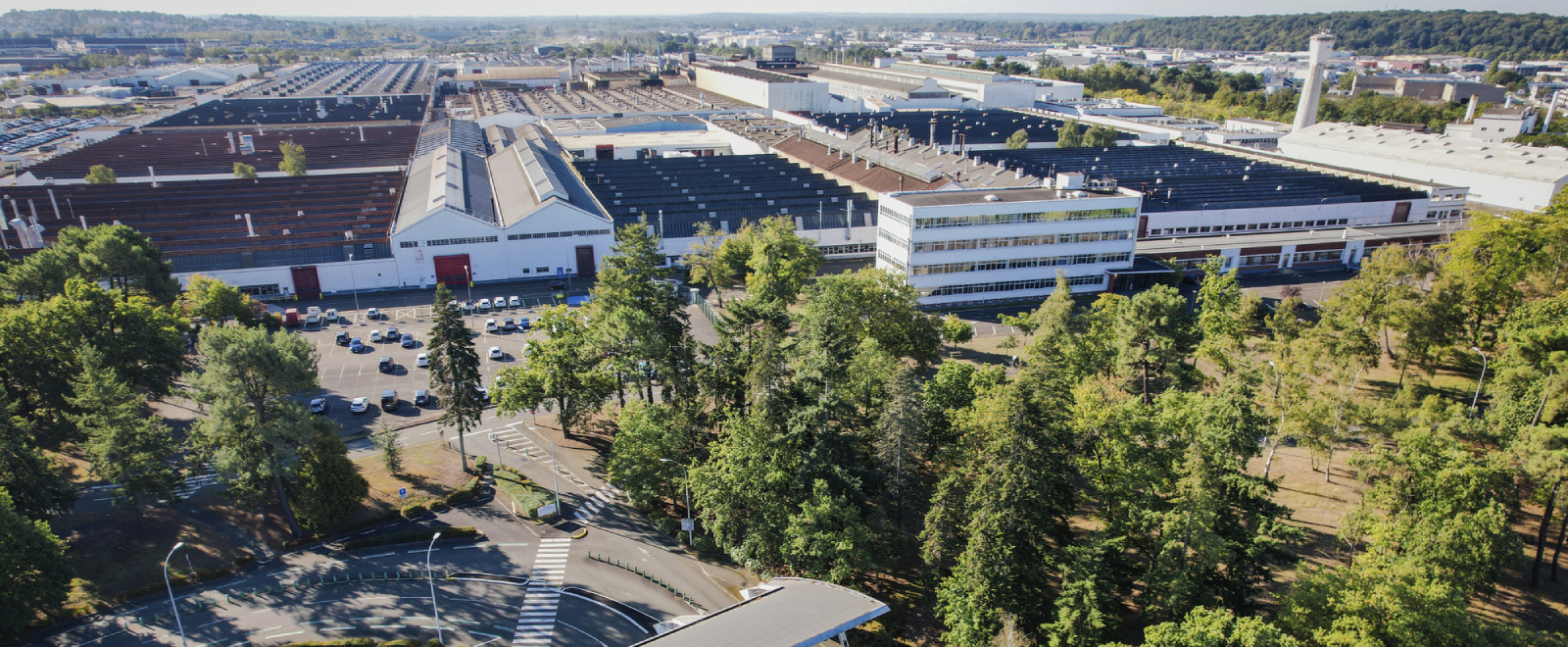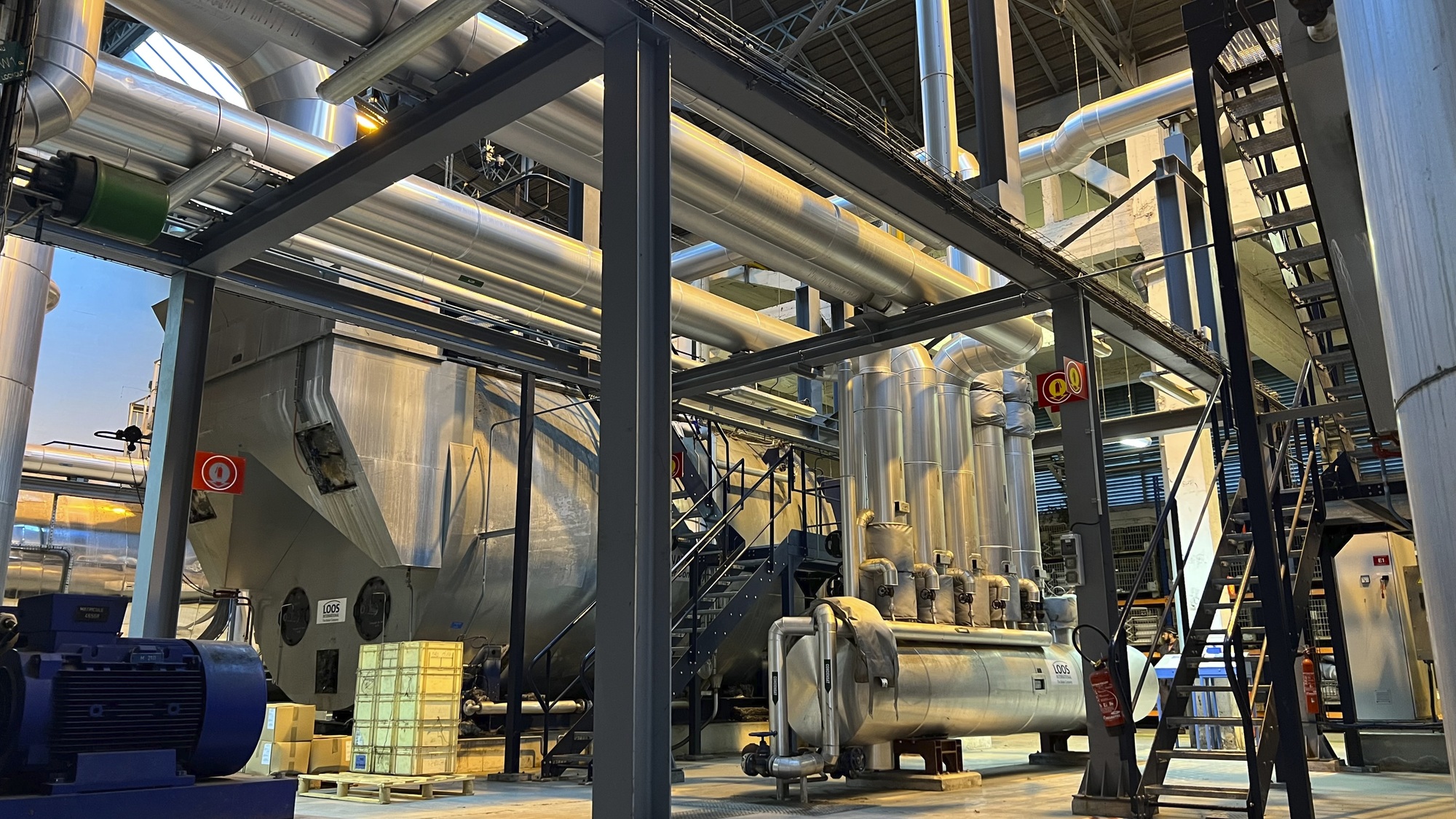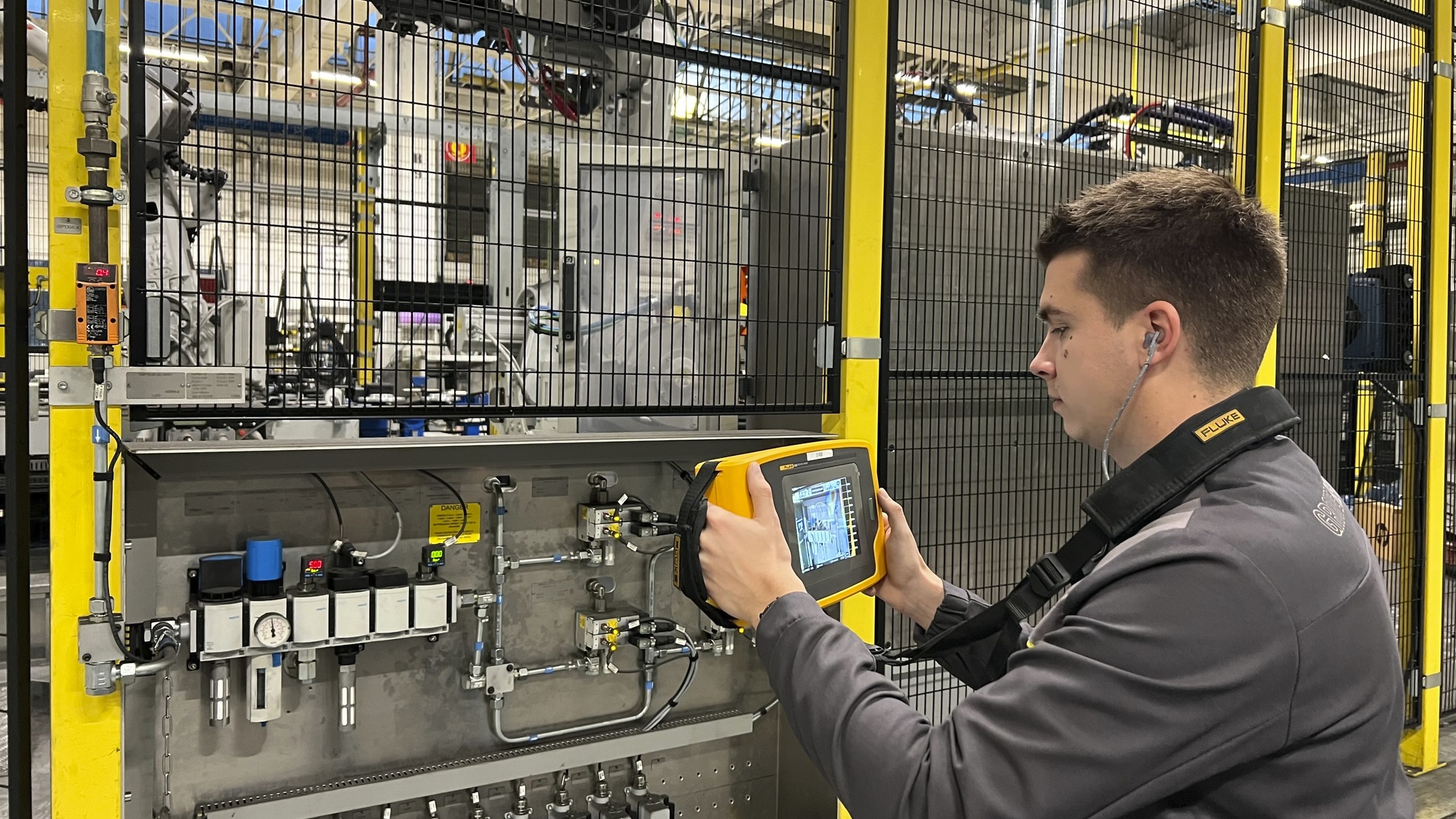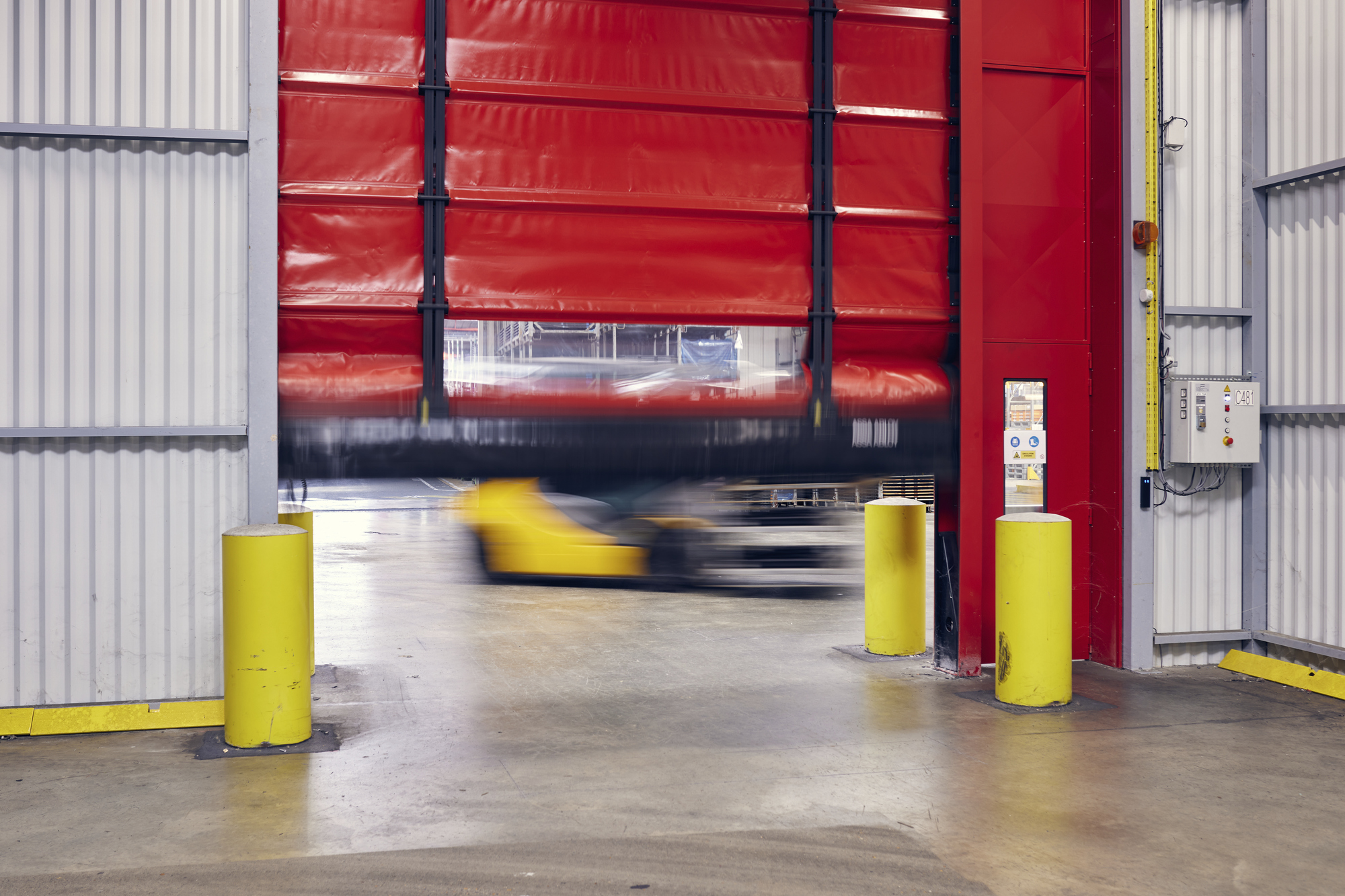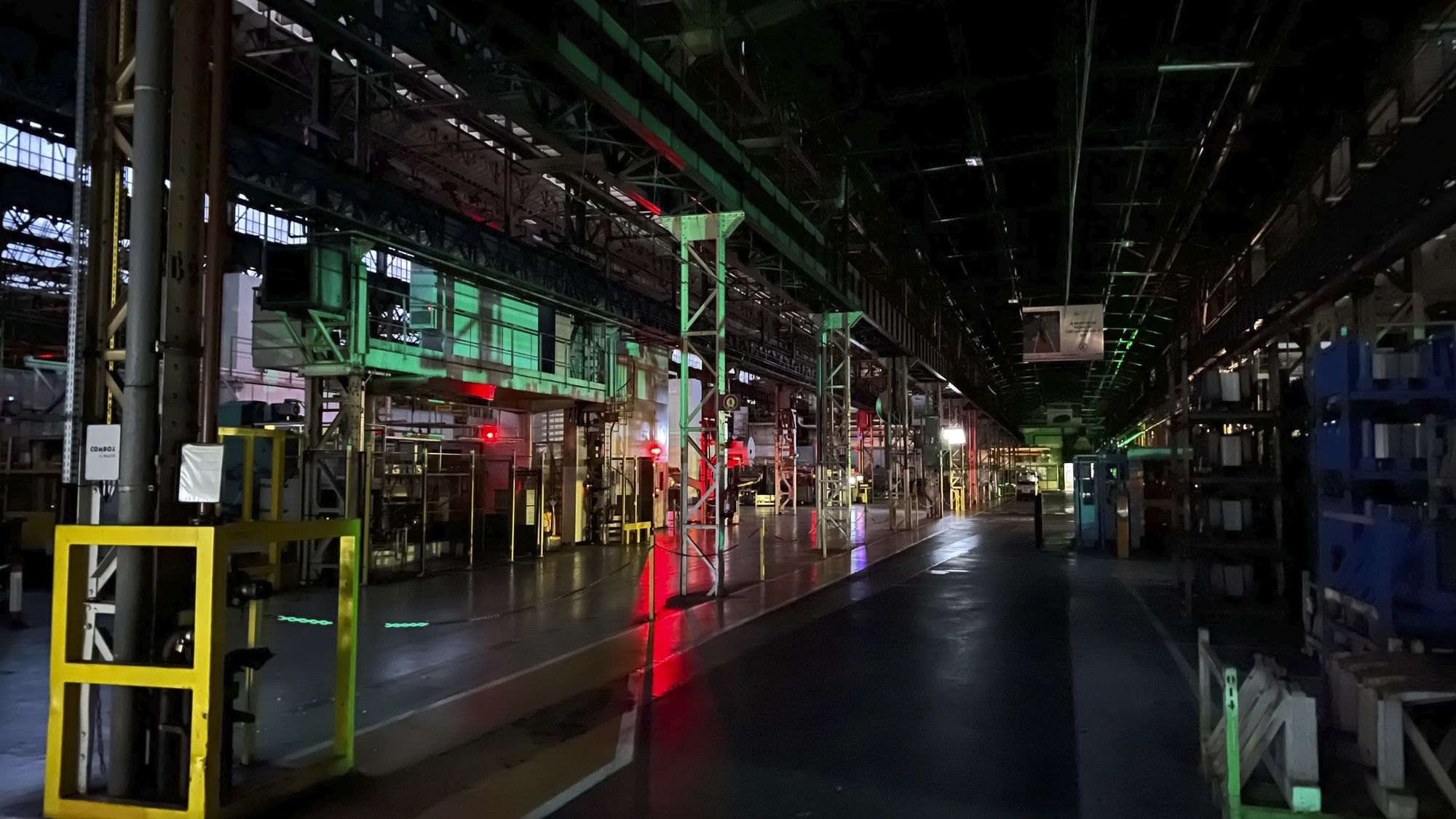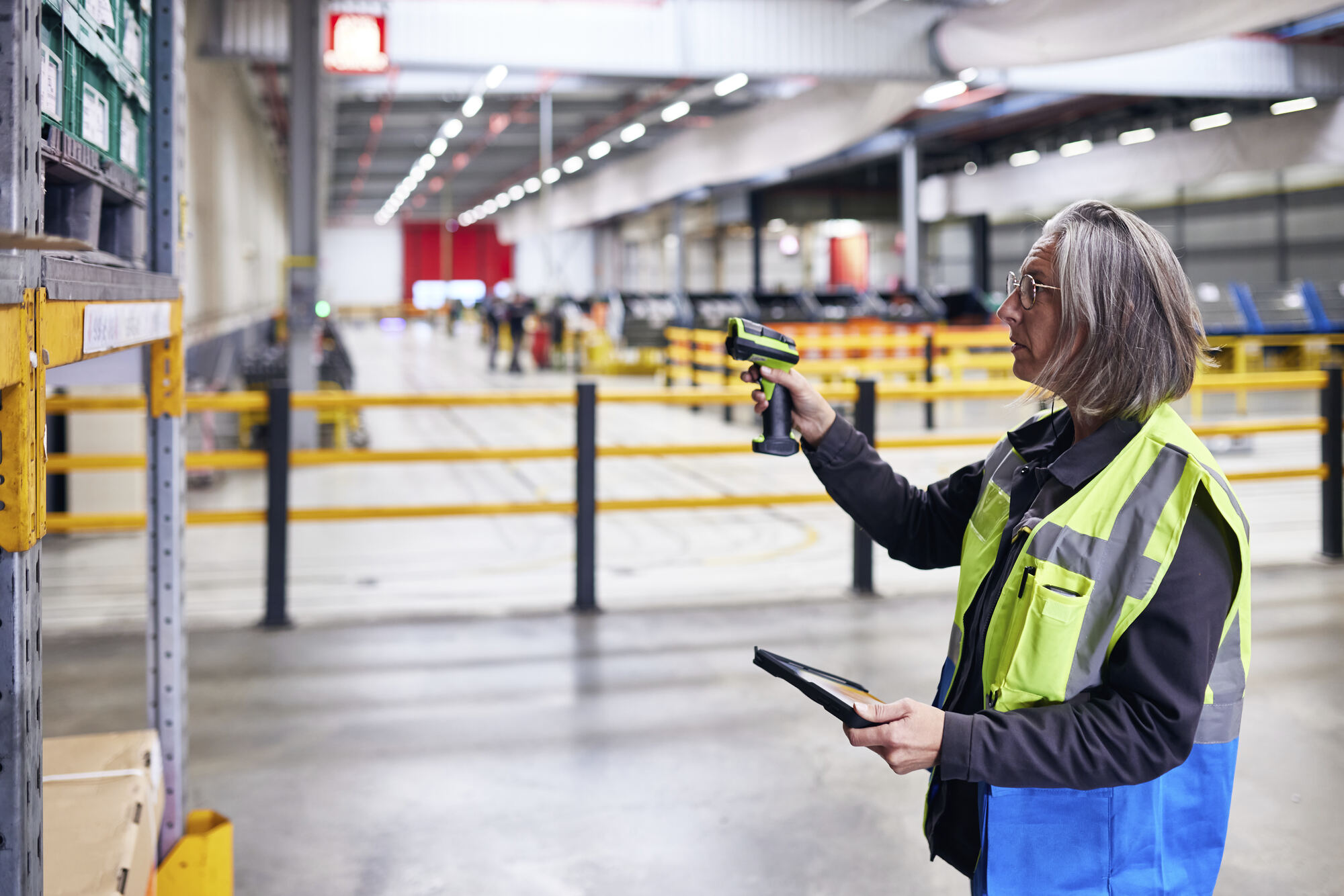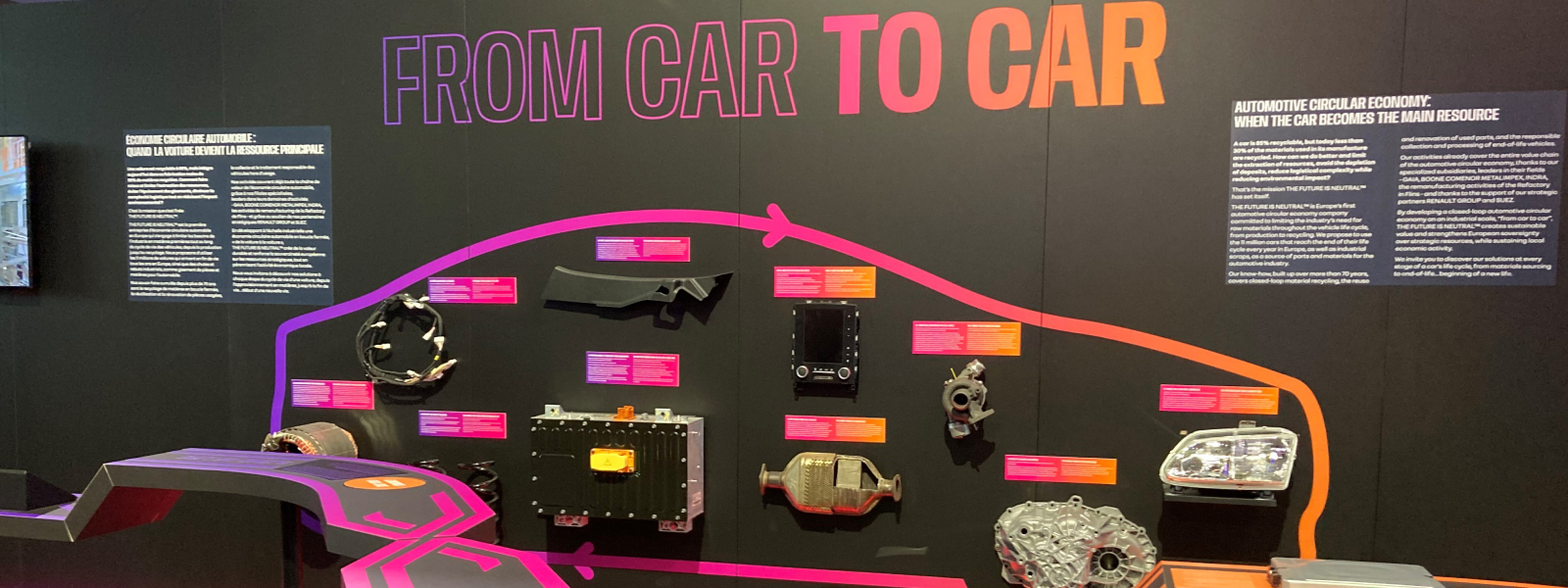

At the Renault Group plant in Le Mans, specialised in chassis parts for ICE, hybrid and electric vehicles, every day begins with a careful check of energy being used across the site. Nicolas Camboulives, the plant's energy officer, works closely with everyone from management teams to operators as they roll out a range of systems in the various departments and plant facilities: digital monitoring of energy use, innovative technology for facility maintenance, optimisation of manufacturing processes. In addition to on-site programmes, the plant has also been running other activities like the energy challenge involving local companies. The overall goal is to find solutions to the climate challenges we are facing today and those we will face in the future.
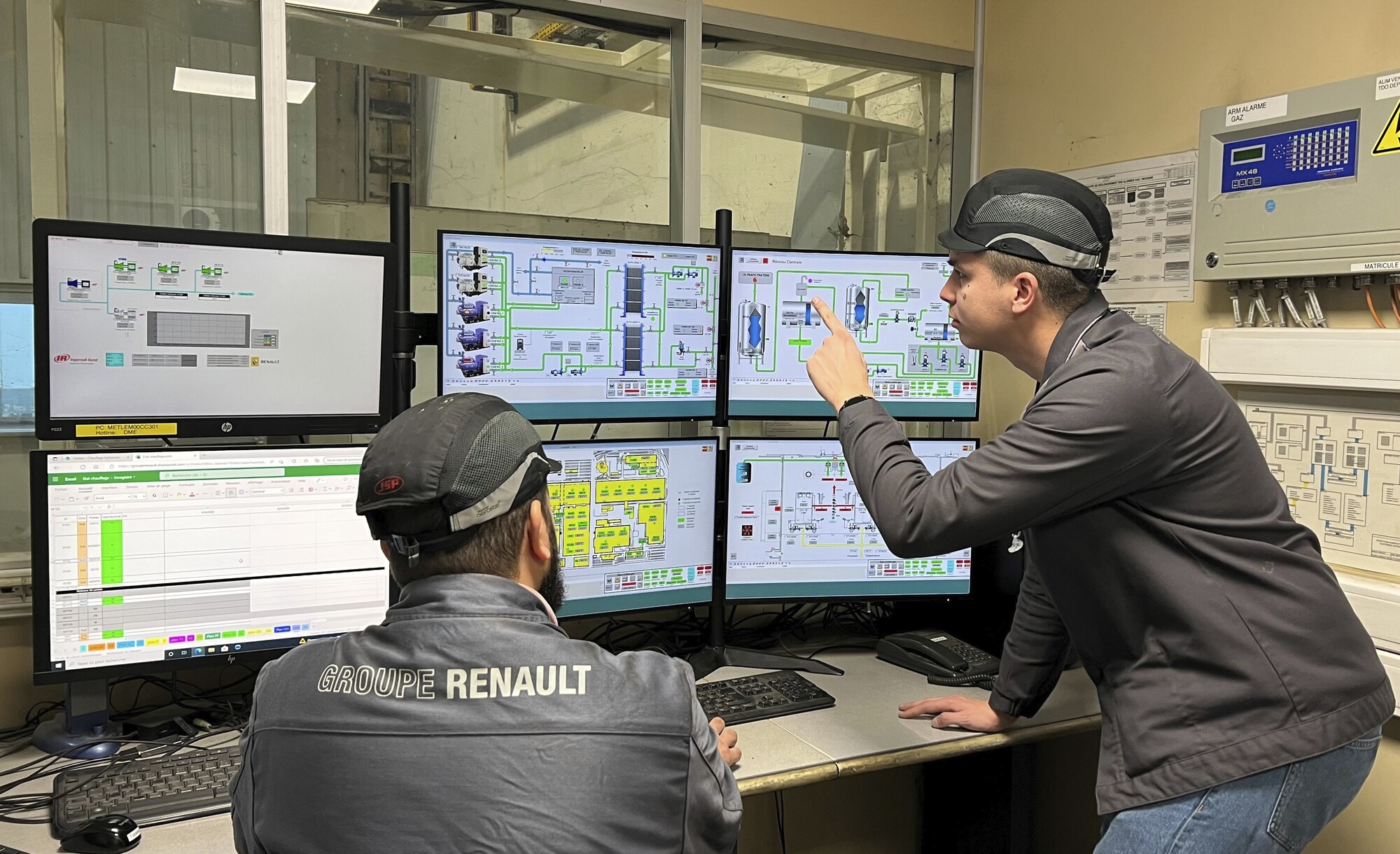

Through digitalizing our tools, constantly monitoring our energy use, and setting in place routines practices in our workshops, our teams are now driven by a mindset built on the importance of reducing our energy use.
Over 400 air leaks fixed
Digital monitoring of the plant’s energy use made it possible to identify what needed to be done to reduce the site’s carbon footprint. One aspect involved reducing the use of compressed air. Every hour, 17,000m3 of compressed air used to be generated for use across the entire plant, and some of it was lost through leaks in the system. The teams targeted the issue head on and in less than a year had reduced the amount of compressed air being used by 15% during production hours. The management of the equipment has also contributed to a 50% reduction during factory down-time. The plant used an ultrasonic camera capable of detecting leaks to solve the issue. It travels from one workshop to the next every week. Each piece of machinery and equipment is scanned for possible leaks. To make sure the data is analysed correctly, Renault teams designed their own software that compile identified leaks into a database, along with their intensity and cost in terms of lost energy and money. Since the beginning of the year, more than 400 leaks have been fixed, for a savings of more than €100,000.
‘24 Hours of Energy’
Above all, improving the site’s energy performance relies on the involvement of each and every employee. So, just last month, the plant launched its very first ‘24h of Energy’ – an energy reduction competition between employees working on the site. Teams competed against each other for the number of air leaks they managed to detect and then fix, and also for the improvements they could identify. A number of great ideas came out of the friendly in-house competition: streamlining of office space use; addition of variators on cataphoresis* pumps; addition of lights on machinery and equipment to indicate when they are in use. More than 70 ideas were compiled after the 24-hour long competition.
*electrophoretic deposition is industrial paint process to fight against corrosion
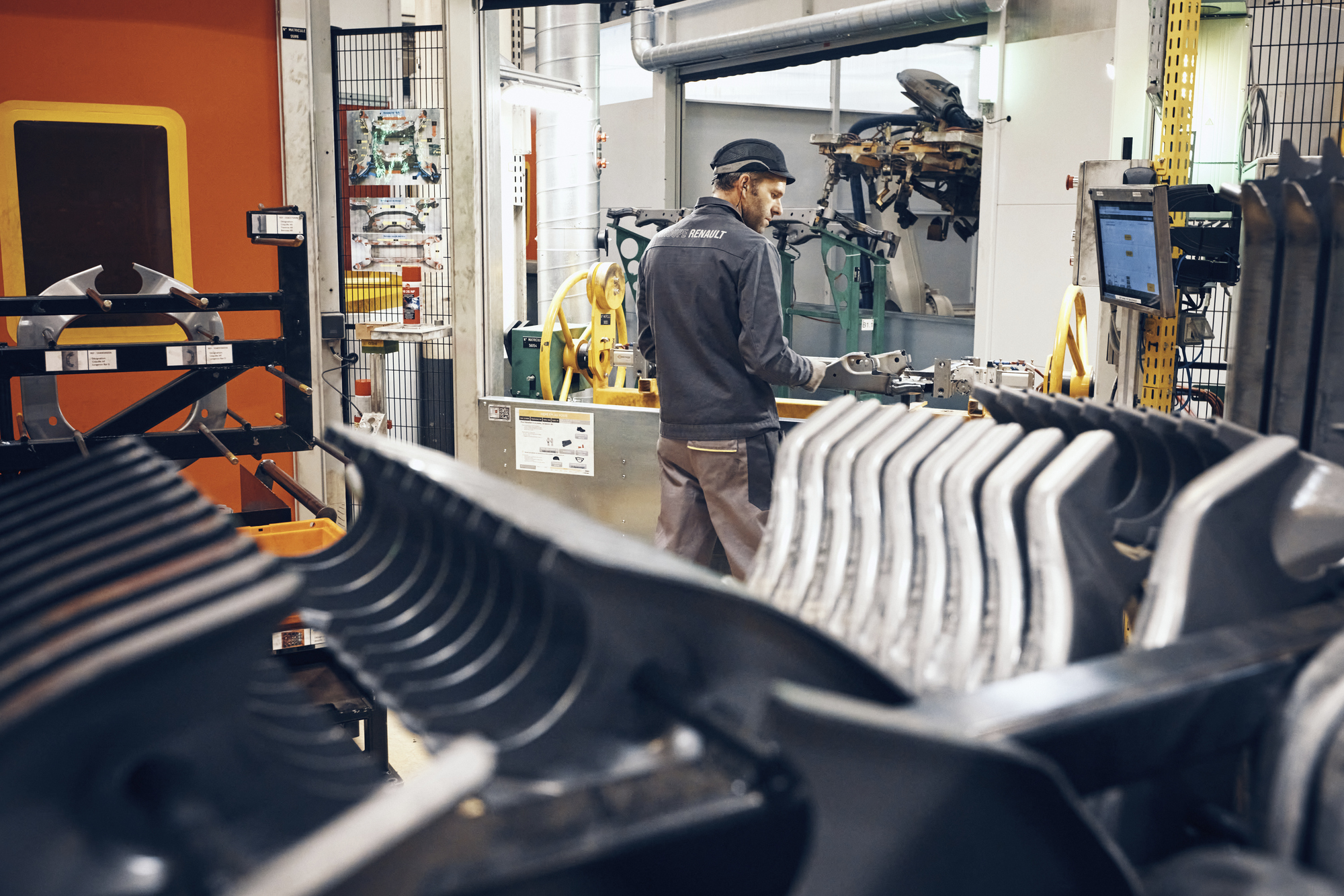
An open challenge to include other local companies
This year, Le Mans also launched an open challenge, getting other local companies involved in finding innovative and effective solutions to reduce the plant’s energy footprint. The challenge targeted the most energy-intensive sectors: cast iron mills, cataphoresis, machining, and regular operations. In late June, proposals put forward by three companies were short-listed: using reflective paint for building insulation, recuperating heat from iron mills to heat other buildings, and the use of on-site solar panels.
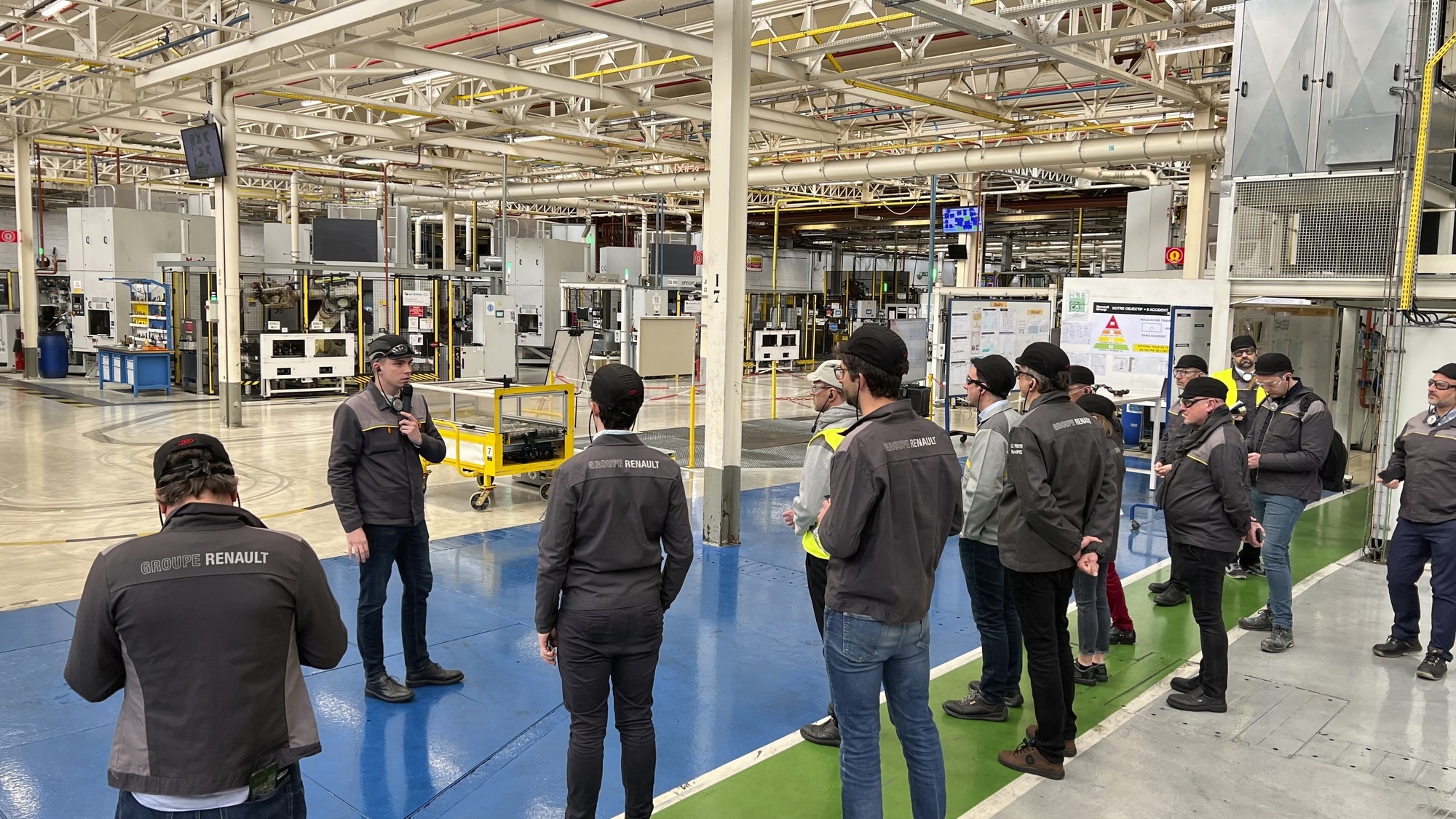
Other ideas such as monitoring open doors, cutting the electricity during down-time, optimizing manufacturing lines, or even reducing logistics, all help constantly reduce the overall energy being used. It all helps put the plant on the right path to helping the environment!
